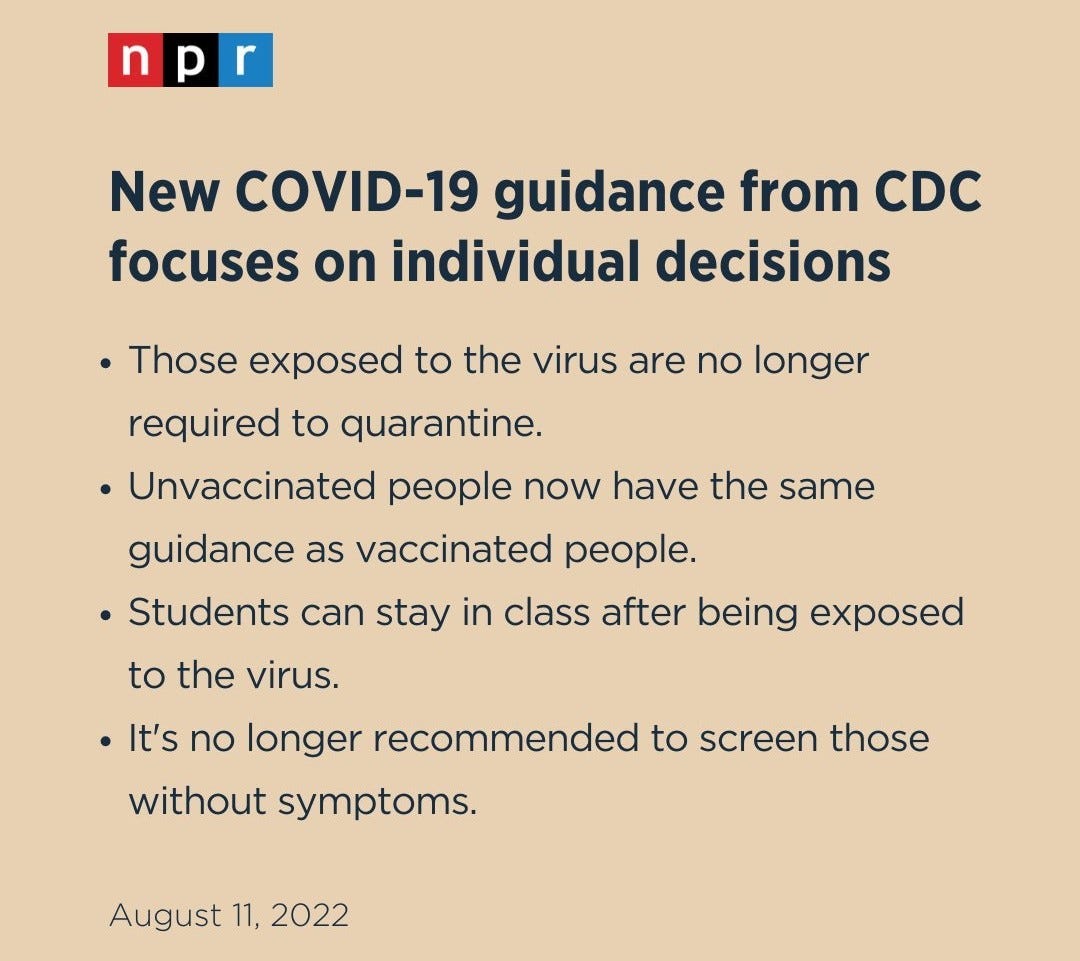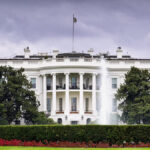
Published August 14, 2022
Some of you may remember that I launched this newsletter almost a year ago after filing a lawsuit against the University of California, my former employer, challenging the constitutionality of their vaccine mandate in federal court on behalf of Covid-recovered individuals. As I argued in that case, natural immunity following Covid infection is equal to (indeed, superior to) vaccine-mediated immunity. Thus, forcing those like me with natural immunity to be vaccinated introduces unnecessary risks without commensurate benefits—either to individuals or to the population as a whole—and violates their equal protection rights guaranteed under the Constitution’s 14th Amendment.
The federal district court judge in my case did not allow the case to proceed to trial, which would have permitted an examination of the science on natural immunity through the usual fact finding legal process. Instead of applying an intermediate or strict level of judicial scrutiny to the case, the judge claimed that a constitutional right was not at stake (rejecting my equal-protection argument) and so applied what the court calls a “rational basis” review.
Under this low level of judicial scrutiny, it was virtually impossible for me to prevail. The University only had to show that it had a plausible reason — a “rational basis” — for its vaccine mandate policy. It did not have to present evidence or demonstrate that the policy would actually achieve its stated aim, nor did it have to show that the policy was narrowly tailored toward this end so as not to infringe unnecessarily on other rights at stake (e.g., bodily autonomy, privacy, etc.). The policy could be overly broad, capturing people with natural immunity that did not require vaccination, for example, and still pass muster legally.
The University’s rational basis argument to the court essentially boiled down to one simple fact: the CDC had not acknowledged natural immunity in its recommendations. Therefore, the University’s mandate did not need to recognize it either. The judge concurred that this was sufficient, end of story. The scientific evidence on either side was entirely beside the point and need not be considered in the courtroom.
And that’s where my case stood until this week, when the CDC published its new covid guidelines. These quietly published guidelines include, among others, the following changes:

The document explains that second bullet point as follows:
CDC’s COVID-19 prevention recommendations no longer differentiate based on a person’s vaccination status because breakthrough infections occur, though they are generally mild, and persons who have had COVID-19 but are not vaccinated have some degree of protection against severe illness from their previous infection.
In short, the CDC now fully endorses my position rather than the University’s vaccine mandate policy. It took the agency a year to come around — many have speculated that the upcoming midterm elections may have nudged the agency to finally acknowledge what scientific evidence has shown clearly since mid-2021. It’s also possible that our legal pressure on the CDC, described in one of my previous posts, helped to move the needle here.
In any case, as the old saying goes, better late than never. You may also recall that, following the lawsuit, the University of California placed me on leave, followed by unpaid suspension, and then fired me for alleged noncompliance with the vaccine mandate that I was challenging in court. Now, their mandate’s only remaining crutch has collapsed. They haven’t yet called to offer me my old job back and I’m not holding my breath. These are not the kind of people that will ever admit they were wrong.
They will, however, be hearing from my lawyer soon. I’m looking forward to the next legal round. Honestly, I don’t need to win any victory in court, though I anticipate now that I will prevail this time. A clear conscience is enough. Thank you to all of you subscribers for standing by me and supporting me on this adventure for the past year.
What have I learned in the last twelve months? Do the right thing, even when it’s unpopular. Stand by your convictions, even when you appear foolish to many. When the other side retaliates, don’t flinch. Be patient. Bide your time. Eventually, the truth will out, so play the long game.
Checkmate.
Aaron Kheriaty is a fellow at the Ethics and Public Policy Center, where he directs EPPC’s program in Bioethics and American Democracy. He is currently Chief of Psychiatry & Ethics at Doc1 Health and Chief of Medical Ethics at The Unity Project, and a Senior Fellow and Director of the Health and Human Flourishing Program at the Zephyr Institute. Dr. Kheriaty is also a Scholar at the Paul Ramsey Institute and he serves on the advisory board at the Simone Weil Center for Political Philosophy.
Photo by Felix Mittermeier on Unsplash
Aaron Kheriaty, MD, is a Fellow & Director of the Program in Bioethics and American Democracy at the Ethics and Public Policy Center. He is a physician specializing in psychiatry and author of three books, including most recently, The New Abnormal: The Rise of the Biomedical Security State (2022).











